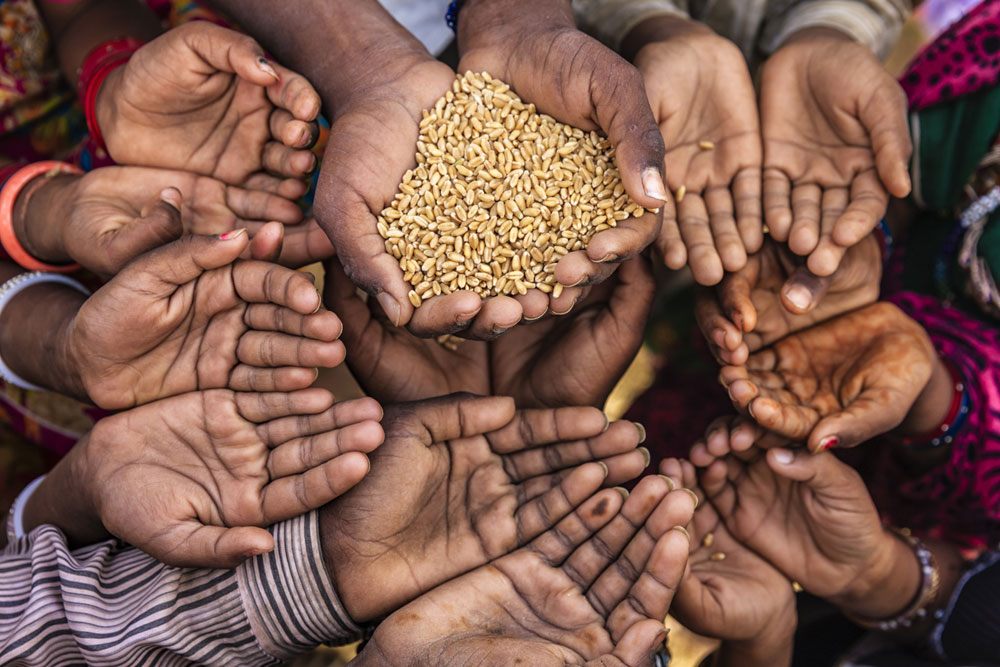A study carried out by the Pratichi Institute and the Asiatic Society has found out that a significant proportion of tribal people in Bengal had faced “food scarcity of varying degrees” in the past one year.
The finding drills holes into Mamata Banerjee government’s claims that its policy of cheap food grain supply, known as khadya sathi, has eliminated hunger.
The survey, preliminary findings of which were released on Monday, had covered 1,000 tribal households in 10 tribal dominated districts, including Purulia, Bankura, West Midnapore, Birbhum and Jalpaiguri.
Nobel laureate and economist Amartya Sen, who donated from his Nobel honorarium to set up Pratichi (India) trust in 1999 and under whose aegis Pratichi Institute was set up to enhance its research and public action, was present at the programme where the survey findings were made public.
The survey pointed out 31 per cent of the surveyed households had faced food scarcity of varying degrees in the past one year.
“For most of the households, the diet contained mainly cereal; seldom could they afford to eat animal protein and pulses. Deforestation coupled with environmental pollution had severely reduced the availability of natural nutrients,” the report said.
The study further said 12 per cent of the surveyed households were unable to afford food more than twice a day.
The findings came as an embarrassment for Nabanna as the government had earlier said no tribal faced scarcity of food after deaths of few Savars were reported from Jhargram a couple of months ago.
During a district review meeting in Jhargram’s Jamboni in November, the chief minister had said there had been no starvation deaths as the government was running several welfare schemes.
A senior official said the report clearly hinted that there was a flaw in the government’s delivery system.
“This is embarrassing because the report says 31 per cent of the surveyed family faced scarcity of food. This should not happen as each tribal person is allotted at least 11kg of food grain every month. Now, we should try to find out why the benefits did not reach the beneficiaries,” said a senior state government official.
Recently, the cultural research institute, a research wing of the state government, had also carried out a survey on Savars and found out several areas where government intervention was required. But the survey did not mention anything related to the scarcity of food.
Though the government survey had said Savars’ dependence on alcohol was causing health problems, the study conducted by the Pratichi Institute and Asiatic Society has taken the issue further.
The survey mentioned that scarcity of food, poverty-born vices like alcoholism and the fragility of the public health system together seemed to have resulted in a much lower life expectancy among the tribal population.
“The average age of family members who died in surveyed households was 58 years — considerably shorter than the average life expectancy at birth in the state (70),” the report reads.
The survey has pointed out several other problems that the tribal community faces and these are shrinking work opportunities for youths, lack of proper healthcare, absence of drainage system in the areas they live and lack of awareness regarding immunisation programmes.
The survey suggested there should be modification of policies to make primary healthcare system and other programmes on education, employment and forest rights more effective for this “vulnerable sections of the society”.
A senior government official said the survey had really thrown up several questions as it clearly found a number of loopholes in the delivery system of the administration.
“We should try to find out ways to bridge the gaps instead of denying the findings of the survey,” he added.










